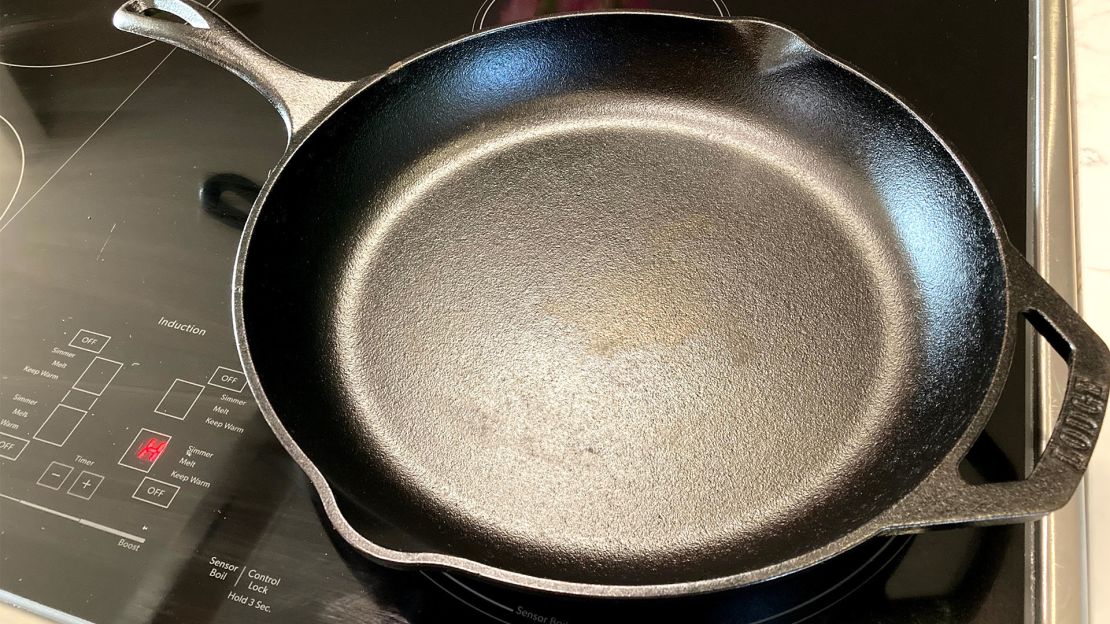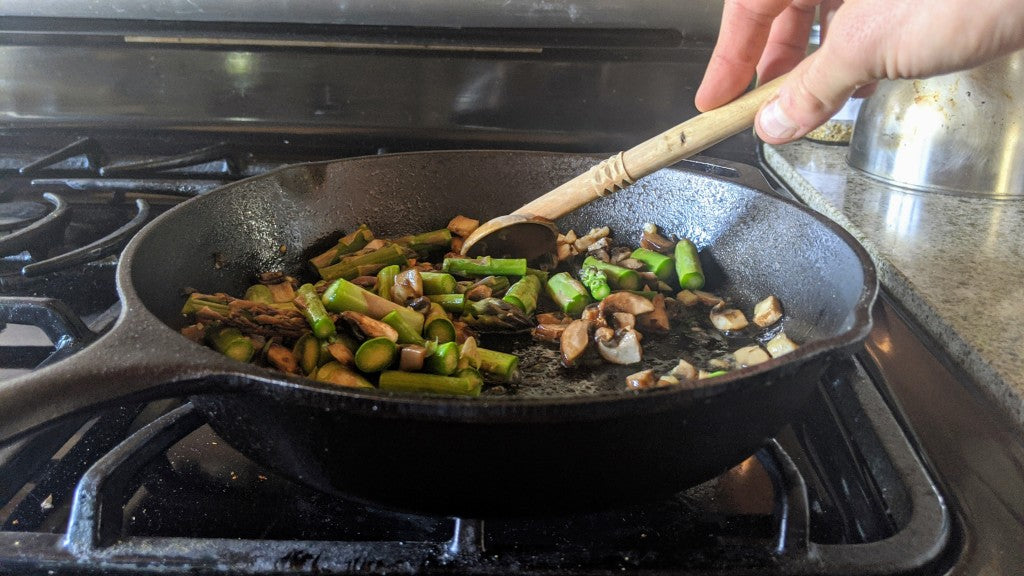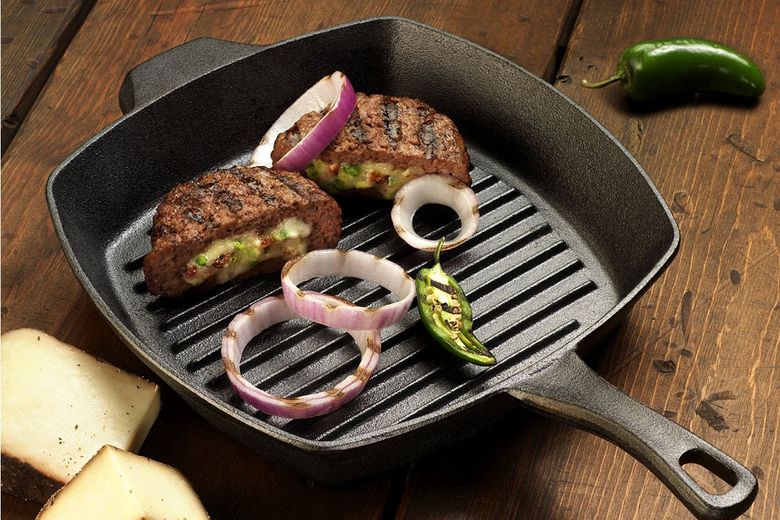The intrigue surrounding the use of a cast iron skillet on a glossy glass cooktop is palpable, especially among kitchen professionals. Those who rely on this classic cooking tool may wonder: Are there necessary precautions? Can I still use it effectively without damaging my cooktop? In this article, we'll delve into how to use a cast iron skillet on glass cooktop while ensuring longevity and performance.
Working in a professional kitchen requires sophisticated equipment and an understanding of how to operate them properly. While a cast iron skillet is renowned for its heat retention and versatility, its weight and surface can pose unique challenges when combined with a glass cooktop. This guide will go through essential considerations, tips, and techniques.
:max_bytes(150000):strip_icc()/how-to-make-your-favorite-cast-iron-skillet-last-forever-1022-2000-5edb8809448b46e2ac64ad7305aafb3a.jpg)
Understanding the Basics
Before we get into specific techniques, lets discuss some fundamental aspects of using a cast iron skillet on a glass cooktop. These concerns often revolve around both the skillets material as well as the surface of the cooktop.
Material Matters
Cast iron is known for its exceptional heat retention and distribution, making it a favorite among chefs. However, its significant weight can lead to potential risks, including:
- Scratching the surface: The weight and rough texture of some cast iron skillets can scratch the glass surface, leading to long-term damage.
- Heat distribution: Glass cooktops may have difficulty providing the even heat required when cooking with cast iron.
Precautions to Take Before Cooking
To use a cast iron skillet on a glass cooktop safely, follow these crucial precautions:
- Check for flatness: Ensure that the bottom of your skillet is flat and smooth. An uneven surface can exacerbate the risk of scratching your cooktop.
- Control the weight: Use a smaller skillet to lessen the load on the cooktop, minimizing damage while maintaining cooking efficiency.
- Secure footing: Place your skillet on the burner gently to avoid sudden impact.
Best Cooking Practices
Now that we've addressed some basic safety tips, lets shift our focus towards effective cooking techniques:
Heating the Skillet
One of the significant advantages of a cast iron skillet is its exceptional heat retention. However, it's crucial to heat it properly on a glass cooktop:
- Start low, then increase: Begin heating your skillet on a low setting, gradually increasing the temperature. This method helps avoid thermal shock to the tempered glass.
- Use a diffuser: A heat diffuser can distribute heat more evenly and protect the glass surface.
Cooking Techniques to Consider
Once you've heated your skillet correctly, heres how to make the most of it:
- Oil up: Always add a small amount of oil before cooking to enhance flavor and prevent sticking.
- Monitor the heat: Keep an eye on the temperature to avoid overheating, which can damage the finish of your skillet and your cooktop.
- Avoid dragging: Lift the skillet instead of sliding it across the cooktop to prevent scratches.
After Cooking Care
Once your culinary masterpiece is complete, careful maintenance is vital to preserving both your cast iron skillet and glass cooktop.
Cleaning Your Skillet
Cleaning your skillet effectively is crucial for its longevity. Check out this resource on how to clean your cast iron skillet. Remember to:
- Use hot water, a soft sponge, and no detergent.
- Season the skillet after every wash to maintain its non-stick surface.
Cleaning the Cooktop
After utilizing a cast iron skillet, it's essential to ensure your glass cooktop is spotless:
- Wait for the cooktop to cool down completely.
- Use a gentle glass cleaner, avoiding abrasive pads or creams that could scratch.
Common Myths and Facts
There are many myths associated with the usage of cast iron skillets on glass cooktops. Understanding the facts can help alleviate any concerns:
Myth: Cast Iron Skillets are Too Heavy
While heavy, if used properly, they won't damage a glass cooktop if precautions are taken.
Myth: They Cause Scratches Every Time
Not true! With a smooth skillet base and careful handling, the risk of scratches decreases significantly.
FAQs
Can my glass cooktop handle any cast iron skillet?
Most glass cooktops can handle cast iron skillets, but it's vital to ensure your skillet is flat and well-maintained.
Does cooking with cast iron on a glass cooktop require special care?
Yes, always ensure the skillet's bottom is smooth and use it gently to avoid scratching.
What cooking techniques work best on a glass cooktop with cast iron?
Slow and steady cooking works best. Start on low heat and gradually raise the temperature while monitoring carefully.
:max_bytes(150000):strip_icc()/ses-product-group-shot-rkilgore-87f90f93b4b34ec5afb38d5d75c6094b.jpeg)
Conclusion
Understanding how to use a cast iron skillet on glass cooktop can be life-changing for kitchen professionals. Mastering the techniques, along with the right care and maintenance, ensures both your skillet and cooktop remain in excellent condition. For additional insights, check out our articles on Tilt Skillets, Polishing Cast Iron, and Skillet Covers.
As an Amazon Associate, I earn from qualifying purchases.






Leave a comment
This site is protected by hCaptcha and the hCaptcha Privacy Policy and Terms of Service apply.